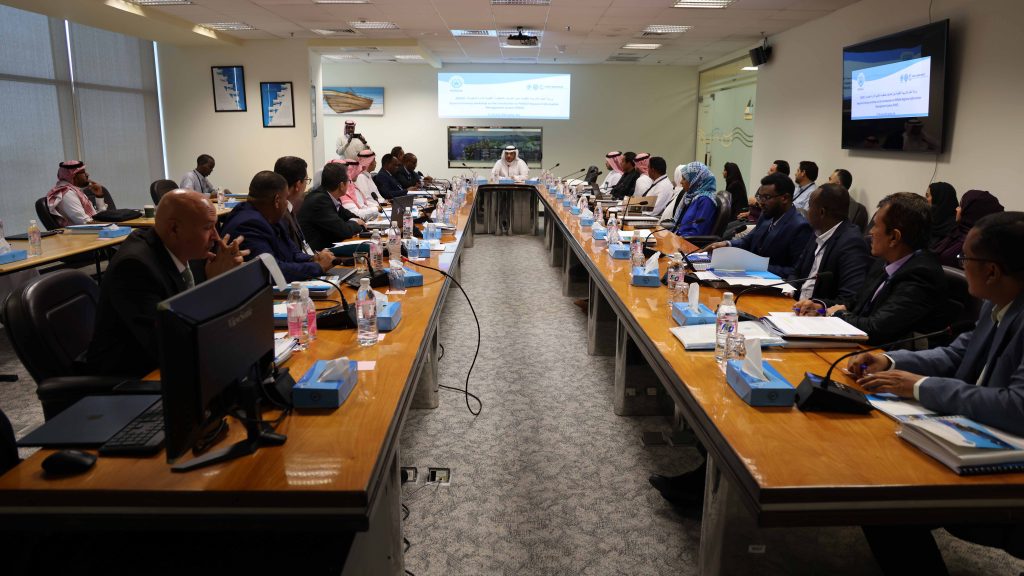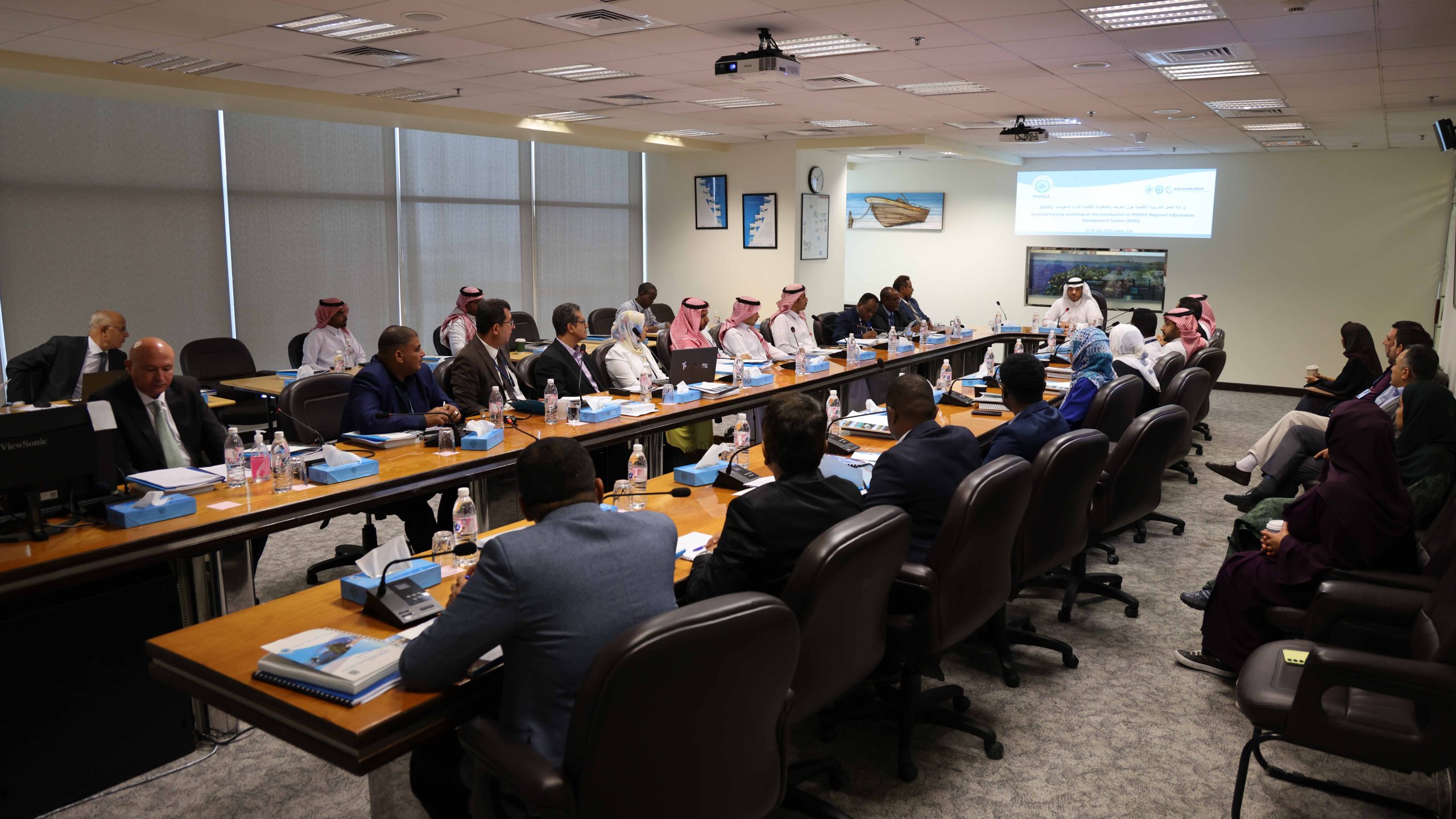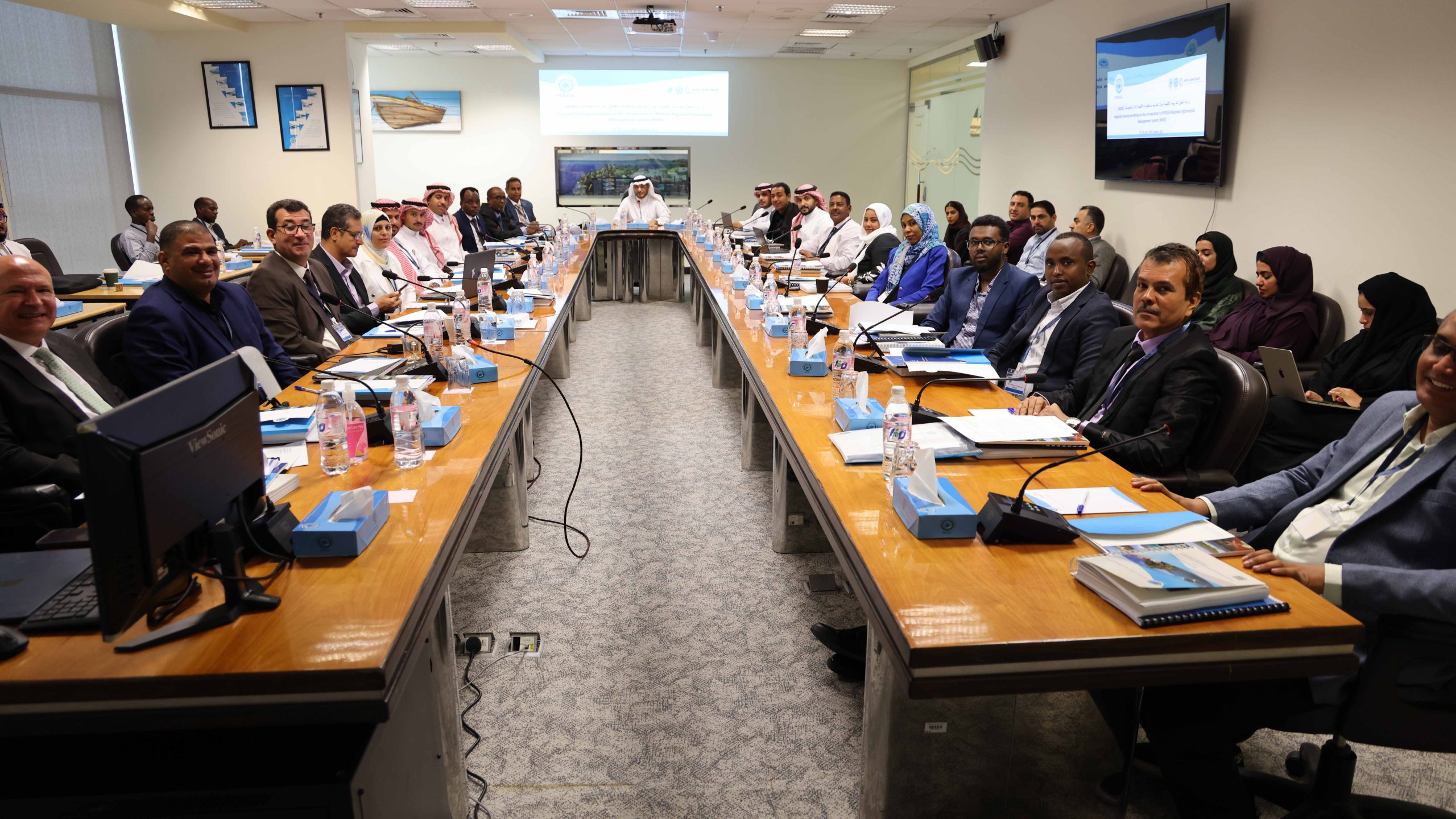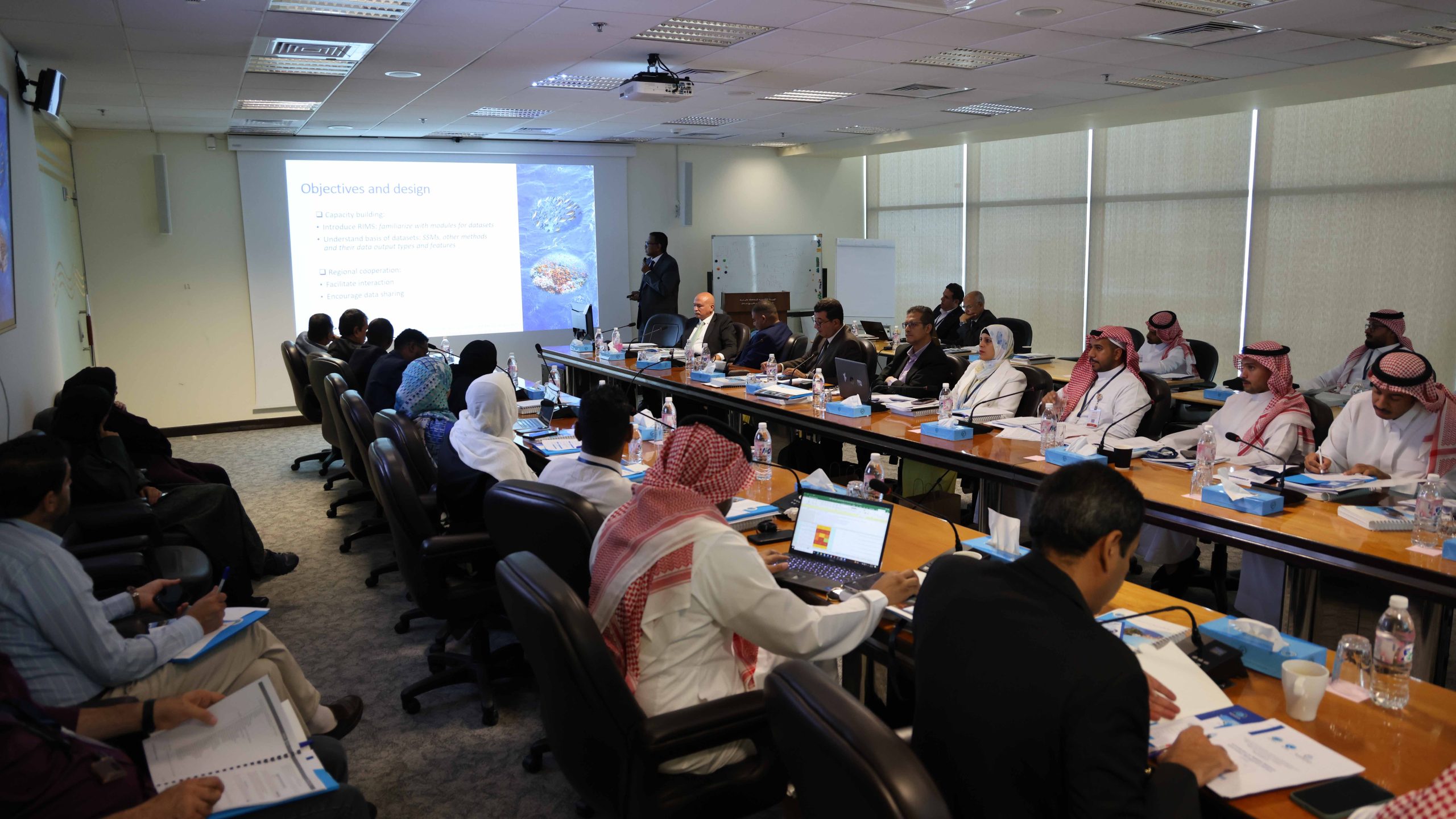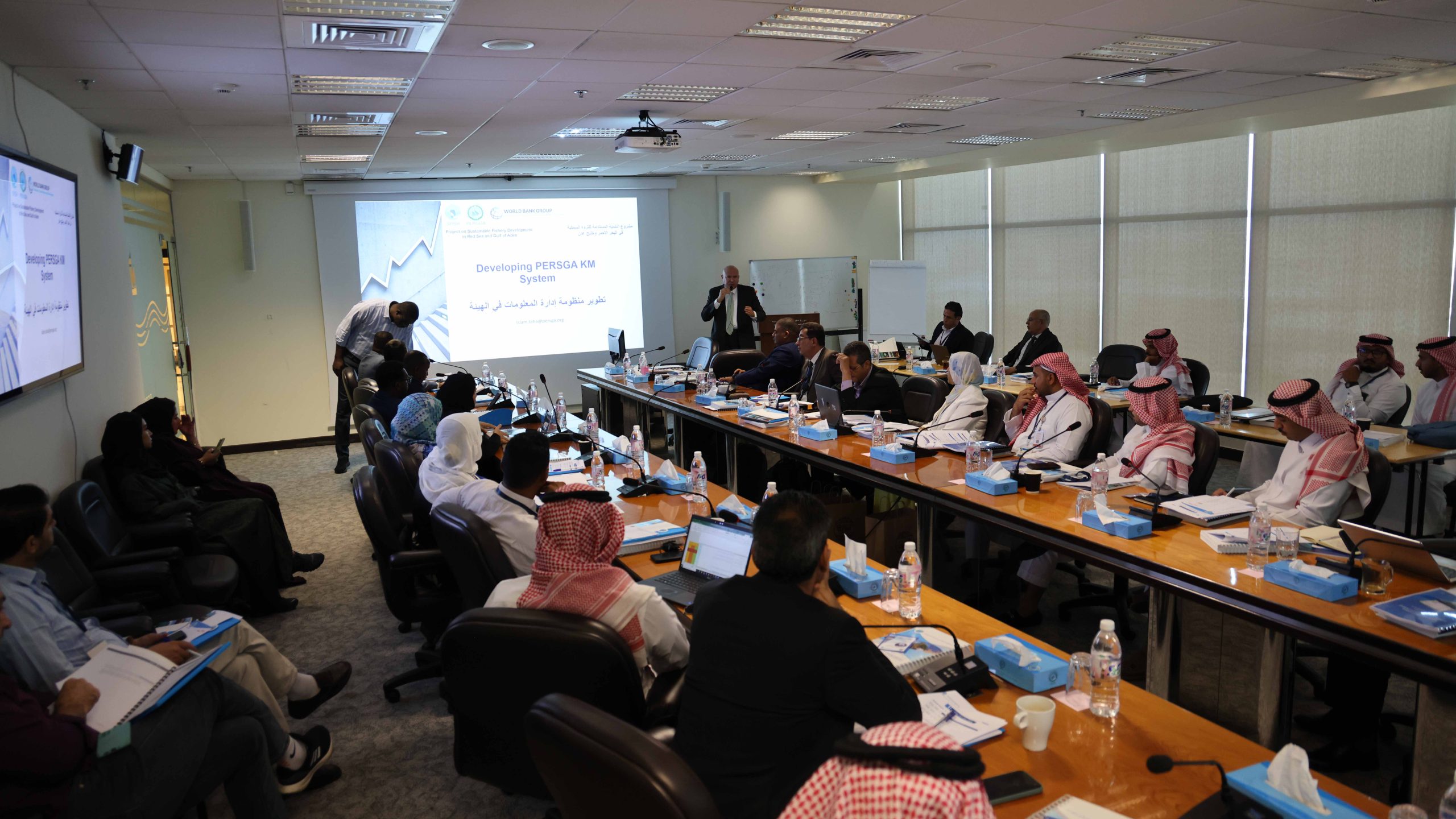Jeddah, 30 July 2025 – The regional workshop on introducing the Regional Information Management System (RIMS) concluded today afternoon at the headquarters of the Regional Organization for the Conservation of the Environment of the Red Sea and Gulf of Aden (PERSGA). The workshop continued over four consecutive days, from Sunday, July 27 to Wednesday, July 30, 2025, with the participation of 32 experts from PERSGA member countries. Participants represented a wide range of sectors including marine protected areas management, fisheries and aquaculture management, environmental compliance, and geographic information systems.
The workshop aimed to introduce the RIMS system, which is a technical platform developed by PERSGA to support environmental monitoring and the integrated management of marine and coastal resources. The system was developed based on PERSGA’s Standard Survey Methods (SSM), issued in 2019 and translated into Arabic in 2021. These methods aim to standardize the collection, analysis, and exchange of data across the region, thereby enhancing the effectiveness of conservation planning and evidence-based decision-making.
Over the course of four days, the training program included many lectures, scientific presentations, and hands-on interactive sessions that allowed participants to explore the system’s functions, data entry and retrieval processes, and its integration with environmental, social, and economic indicators.
The workshop also featured case studies from various member countries, demonstrating how the RIMS platform can support environmental protection initiatives, and the development of coastal communities. This included the activation of modeling tools used to simulate marine pollution events, which have become more frequent in recent times.
At the closing session of the workshop, participants unanimously agreed on the importance of investing in national and regional capacity-building in the fields of environmental technology and digital transformation, including leveraging artificial intelligence. It was also agreed that RIMS represents a step toward strengthening regional cooperation and achieving data and information integration as a key tool for supporting the sustainability of the marine environment in the Red Sea and Gulf of Aden.
PERSGA affirmed that this workshop is the beginning of a series of training activities and supportive programs aimed at expanding the use of the system in RSGA region. PERSGA also called on participants to transfer the knowledge and expertise they gained to their national institutions, thereby contributing to the enhancement of the regional marine data system.
The workshop concluded with a set of key recommendations, the most notable of which include:
- PERSGA should create a user account on the RIMS trial version with full access to all system components, allowing specialists to explore the system in greater depth.
- PERSGA should review the terminology used in the system’s lookup tables for boat types and fishing gear to ensure alignment with terms used in FAO systems. This would result in outputs that are consistent with internationally recognized classifications.
- PERSGA should examine existing national systems in some member countries and explore the potential for integration with RIMS.
- PERSGA should prepare a draft Operational Level Agreement (OLA) and present it to the system users for future adoption.
This workshop came as part of PERSGA’s ongoing efforts in the framework of the SFISH Project, which is implemented in collaboration with and the support of the World Bank. The project has enabled developing the digital infrastructure and database design for the Regional Information System (RIMS) platform for sharing data and knowledge management supporting management of marine environmental and living resources, aiming to strengthen collaboration between PERSGA member countries in this regard.

